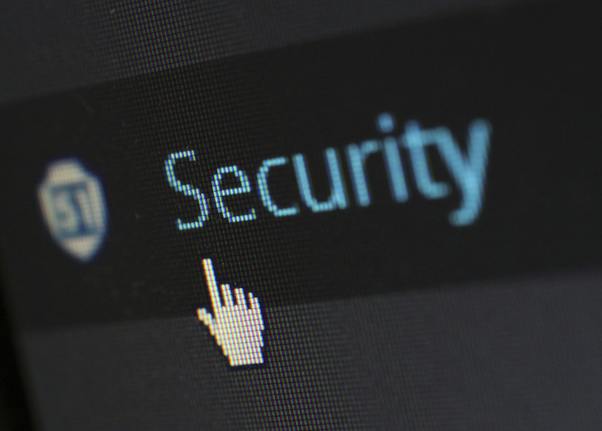5 Ways Startups Can Secure Their Customers’ Data
 Startups have one primary goal—to grow and develop as much as possible. Unfortunately, this could result in completely ignoring other important aspects, such as cybersecurity. Not every startup has enough resources or staff to focus on this issue. Building a startup is hard work, and sometimes there are other priorities.
Startups have one primary goal—to grow and develop as much as possible. Unfortunately, this could result in completely ignoring other important aspects, such as cybersecurity. Not every startup has enough resources or staff to focus on this issue. Building a startup is hard work, and sometimes there are other priorities.
But big data, especially customer information, is attractive to cybercriminals. Without proper security measures, a startup could experience a security breach, which will undoubtedly damage its reputation and future. Preparation is everything, so let’s explore this topic further and discuss ways of securing customer data.
1. Training the employees

Training the employees should be a priority for startups. When the team knows how to recognize security risks and respond to them accordingly, you’ve already solved half of the problem. Just remember that the training needs to cover various topics, including cybersecurity threats, safe internet browsing, data protection, remote work, and more.
In fact, incorporating resources like SY0-701 Exam Dumps into your training program can help ensure that all these essential topics are covered, providing your employees with a solid foundation in security best practices.
Since human error is often the cause of security breaches, covering subjects like social engineering and phishing is a must. Employees need to be aware of the tactics used by cybercriminals today. Teaching them how to recognize a fake email or link should prevent data breaches in the future.
Pay attention to: Access control
Besides training the employees, you should consider implementing access control. It means that only certain staff members will have access to customer information, lowering the possibility of a data breach. Ensure these employees use strong passwords and set up two-factor authentication for extra safety.
2. Using a VPN
 Startups can use VPNs in many ways, but one of the main benefits is enhanced cybersecurity. This tool is essential for online communication and data exchange. The reason behind this is encryption, which adds an extra layer of security whether your team works from an office, at home with one of the best residential proxies, or a public place.
Startups can use VPNs in many ways, but one of the main benefits is enhanced cybersecurity. This tool is essential for online communication and data exchange. The reason behind this is encryption, which adds an extra layer of security whether your team works from an office, at home with one of the best residential proxies, or a public place.
Some employees prefer to work remotely or while on the move, but they still must access the internal network and databases. It is where VPN’s data encryption can come in handy because remote workers will be able to log in without worrying about eavesdropping or intercepted communication. Furthermore, a VPN encrypts all the communications done between team members.
Pay attention to: Proxy server vs VPN
Both proxy servers and VPNs are used for online security, but they are not the same. There are several major differences when it comes to a proxy server vs VPN. For instance, proxies won’t encrypt the data we send or receive, but our IP address will be changed to the proxy server’s IP. That means both will hide an actual IP address, but only the VPN technology provides encryption.
Encryption is a huge advantage, and proxies lack that layer of cybersecurity. When talking about proxy servers and VPNs, we need to mention that a VPN encrypts the traffic of an entire device, while a proxy server needs to be configured to work with certain apps.
3. Automating threat detection
 Startups don’t have a lot of resources at their disposal at the very beginning, and automating threat detection might be the best way to prevent security breaches. Implementing automated tools into the cybersecurity strategy will take the load off the employees and provide timely warnings.
Startups don’t have a lot of resources at their disposal at the very beginning, and automating threat detection might be the best way to prevent security breaches. Implementing automated tools into the cybersecurity strategy will take the load off the employees and provide timely warnings.
Automation includes understanding and identifying the crucial data within the system. You need to apply machine learning algorithms, which will get familiar with how the system works. Then, add tools for real-time monitoring and detection. Machine learning algorithms will know how to differentiate between normal and abnormal behavior within the system and network.
Pay attention to: Conducting vulnerability check
Every cybersecurity strategy should include a vulnerability check. It can prevent security issues from happening by analyzing the code and pointing out the weak spots. Knowing what needs fixing will keep you one step ahead of cybercriminals, who are always searching for ways to exploit system and network vulnerabilities.
4. Having a set of cybersecurity measures
 Besides employee training, cybersecurity measures include various tools designed to protect a startup from cyberattacks. For example, make sure everyone knows what to do in case of a security breach. Having a response plan can significantly lower the damage and prevent unnecessary losses.
Besides employee training, cybersecurity measures include various tools designed to protect a startup from cyberattacks. For example, make sure everyone knows what to do in case of a security breach. Having a response plan can significantly lower the damage and prevent unnecessary losses.
Cybersecurity measures should cover mandatory software such as antivirus software, firewalls, VPNs, and more. Firewalls are effective for unauthorized access to a network, while antivirus software protects devices from malware, spyware, and viruses.
Pay attention to: Regular software updates
Regular updates to antivirus software provide the best protection against daily emerging threats. But this doesn’t mean you should ignore other software updates. Remember that each update usually includes bug fixes and patches, which will prevent hackers from finding ways to exploit software vulnerabilities.
5. Always think about the customers
 Protecting your clients and customers should be at the top of your list. Startups need to maintain a solid reputation. Just a single data breach can take that away. Even though Cambridge Analytica isn’t exactly a startup, they were involved in a scandal in 2018, along with Facebook. Both companies ended up with tarnished reputations, and Facebook’s popularity dwindled as a result.
Protecting your clients and customers should be at the top of your list. Startups need to maintain a solid reputation. Just a single data breach can take that away. Even though Cambridge Analytica isn’t exactly a startup, they were involved in a scandal in 2018, along with Facebook. Both companies ended up with tarnished reputations, and Facebook’s popularity dwindled as a result.
Therefore, protecting the user data every step of the way is a must. Start with website encryption to keep the information safe during storage. Ask for necessary data only to keep the stored information at a minimum. Big data and customer profiles should be kept in a separate storage. Even if your startup experiences a security breach, hackers won’t be able to steal someone’s identity with the help of your stored data.
Conclusion
Startups should strengthen their cybersecurity measures because hackers don’t hesitate to go after smaller targets. Sadly, cybercriminals know that most startups will be easy targets as they don’t prioritize electronic information security. But things can change if startups start to train their employees, implement cybersecurity tools, and create a response plan.
Cybersecurity could seem like a huge investment when working with a limited budget, but it will be beneficial down the line. Building trust and having loyal customers is vital for a startup. However, a data breach can happen to anyone regardless of size, and the consequences could be serious.
Showing your partners, investors, and customers you are reliable and responsible by putting security first can only help you grow faster.